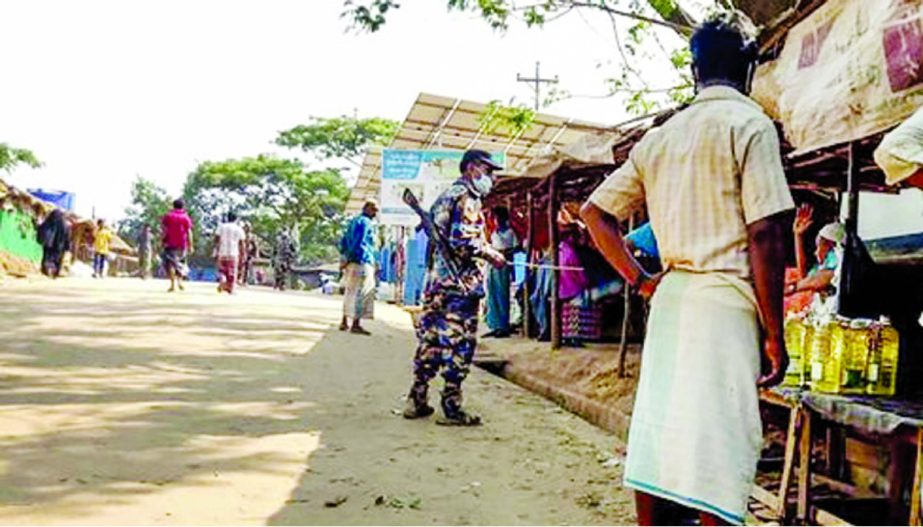
Staff Reporter:
First coronavirus cases found in Rohingya refugee camps in Cox’s Bazar amid experts’ warning for several times that the disease could spread in the overcrowded camps also where nearly one million Rohingya refugees live in overcrowded and unsanitary conditions.
“Two refugees had tested positive for COVID-19,” said Dr Abu Toha Bhuiyan, Health Coordinator at the Rohingya Refugee Repatriation Commissioner’s Office, adding, “Authorities stepped up prevention measures and were scaling up testing following the development.”
He also said refugees have been identified as infected with the coronavirus were residents of the
Kutupalong Rohingya camp in Cox’s Bazar.
Toha futher said that samples of 36 refugees tested on Thursday and two of them had been identified as coronavirus positive.
Since the first three cases of coronavirus detected in Bnagladesh on Mrach 8, public health experts expressed concern that the contagion could rage in 34 refugee camps across Cox’s Bazar unless vital public health-related preparations and preventive measures are not taken in an urgent basis.
Coronavirus infections have been gathering pace in recent days in Bangladesh, which has reported 18,863 cases of COVID-19 and 283 deaths.
When asked, Md Mahbubul Alam Talukder, Refugee Relief and Repatriation Commissioner (RRC) said that they had already taken necessary precautionary measures so that the spread of virus can be prevented.
“Rohingya camps in Cox’s Bazar went under complete lockdown since first week of March as a preventive measure against the Covid-19 outbreak. Outsiders’ entrance have totally been stopped and movement restrictions on aid workers had also been imposed in the camps, he told The New Nation by phone.
“But first two coronovirus cases found in one camp yesterday and they have been taken to an isolation center after they tested positive,” he added.
Citing precautionary measures, he also said, camp-in-charges continues to make awareness programmers and adequate hygiene kits have been provided in the camps with support from UN agencies.
Besides, 116-health post has been set up inside the camps for conduction health screening. Quarantine and isolation centers have been set up at the upazila health complexes in Ukhiya, Teknaf and Ramu of Cox’s Bazar. A total of 186 isolation beds kept in standby at the hospitals and ICU facility put in place there to treat Covid-19 patients.
Md Mahbubul Alam Talukder also cited that the humanitarian agencies and government of Bangladesh are working closely in COVID-19 preparedness and response in camps across Cox’s Bazar.
Earlier, aid workers also warned of a potential humanitarian disaster if there is a significant outbreak in the refugee camps outside Cox’s Bazar where as many as 60,000 to 90,000 people are jammed into each square kilometer, with families of up to a dozen sharing small shelters.
More than 730,000 Rohingya arrived from Myanmar in late 2017 after fleeing a military crackdown. Myanmar is facing charges of genocide at the International Court of Justice in the Hague over the violence.
Meanwhile, police and soldiers set up roadblocks on the main roads of the district, home to 3.4 million people including the Rohingya refugees, and were conducting patrols inside and around the camps to strictly maintain the lockdown.
So far a total of 107 coronavirus cases are confirmed in Cox’s Bazar district
Meanwhile, police and soldiers set up roadblocks on the main roads of the district, home to 3.4 million people including the Rohingya refugees, and were conducting patrols inside and around the camps to strictly maintain the lockdown.

